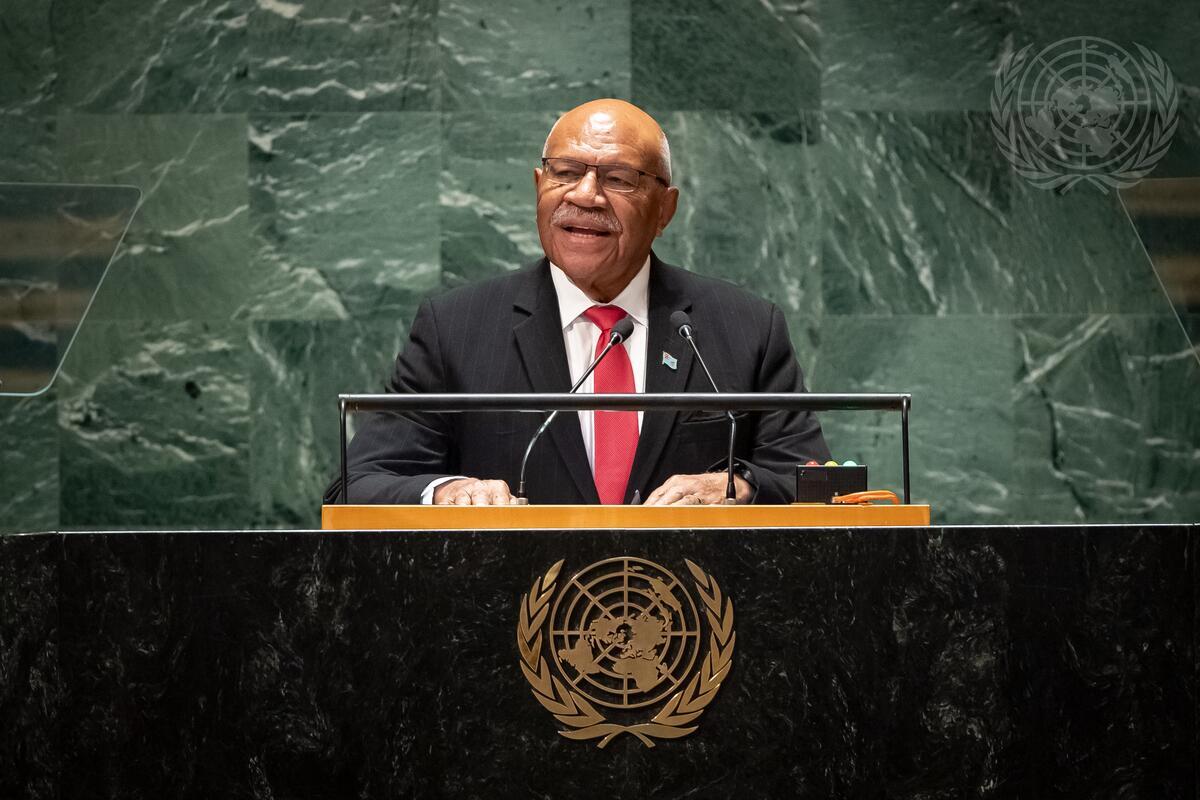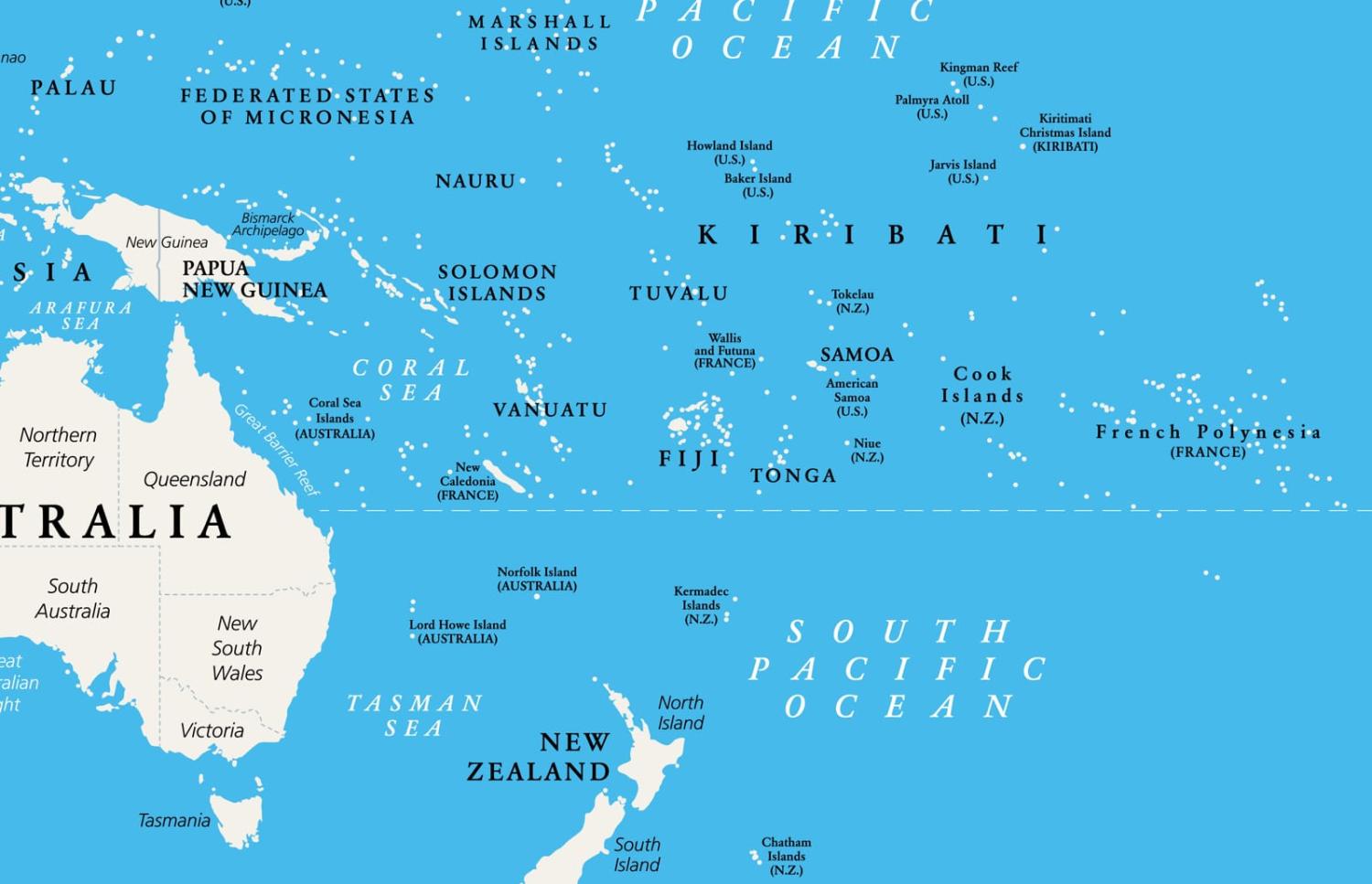During the Melanesian Spearhead Group Leaders’ meeting held in Port Vila in August, Fiji’s Prime Minister Sitiveni Rabuka advocated the concept of a “zone of peace”. He returned to this theme in September during the United Nations General Assembly debate in New York, warning “the world that I see today is full of pain”, with growing geopolitical rivalry contributing to escalating tensions, including in the Pacific.
“We must consider the Pacific a zone of peace,” he told the gathered global leaders, as a “contribution to world order” linked to security challenges associated with climate change.
While Rabuka’s intent is mitigating the effects of US-China competition in the region, this concept is not new to the region, as it was invoked in the 1980s at the height of the Pacific’s anti-nuclear testing campaign. It also has relevance for other states within the Pacific Islands region. Tribal conflicts in Papua New Guinea and the violence in the restive Indonesian province of West Papua are cited as examples of places that should also be the focus.
Rabuka later clarified during a visit to Australia that the “ocean of peace” has spiritual connotations and is deeply rooted in Pacific ideas of family and relationships. Peace is a global public good, and the soft power appeal of Pacific states will depend on their ability to incubate this idea in their own region. Its adoption into the language and practice of Pacific Island states and territories will be mostly informal and voluntary.
The idea overlaps with existing regional commitments, which have been set out to navigate the region through uncertain times – and indeed, that appears deliberate. The 2018 Boe Declaration and the “Blue Pacific” concept, which Rabuka also invoked, appeal to stability, peace and adherence to the rules-based international order. For instance, in the thematic area of peace and security within the 2050 Strategy for the Blue Pacific Continent, specific reference is made to geopolitical tensions in the region and the need to mediate such tensions.
Rabuka appears to be putting a personal stamp on the regional response. He envisages a mediator role for Pacific Island states, and as a leader of long standing, Rabuka speaks from a position of experience on matters of regional importance. In 1998, Rabuka was Commonwealth Special Envoy to broker a peace settlement in the Solomon Islands conflict, and was more recently appointed Special Envoy to address the West Papua issue by the Melanesian Spearhead Group caucus. At the recent APEC Summit in San Francisco, Rabuka and PNG Prime Minister James Marape engaged in dialogue on the situation in West Papua with their Indonesian counterpart President Joko Widodo.

However, selling the zone of peace idea is fraught with complications. Pacific states are entangled with external powers in military and security arrangements that appear overtly belligerent. The flurry of activity in recent years suggests that the likelihood of de-escalation is minimal. Fiji’s former prime minister Mahendra Chaudhry last week warned the region to be wary of accepting financial assistance from Australia, lest countries compromise sovereignty, particularly on questions related to criticism of Australia’s fossil fuel policies.
And entanglement has benefits. PNG, for example, regularly invokes its “friend to all, enemy to none” sentiment as a guide for foreign policy, but nevertheless went ahead and signed a defence cooperation with the United States, prompting concern about the country’s commitment to non-alignment policies. Solomon Islands has its security agreement with China, too.
Rabuka wants to ensure Pacific perspectives are heard, views that are usually drowned out when communicated to non-Pacific audiences. The zone of peace concept is largely rehearsing a narrative that has developed in recent years, but in any asymmetric power relations, the voice of the smaller players needs to be amplified, clearly stated, and repeated. Otherwise, there is a risk of paying lip service to local perspectives – whether on security, sustainable development or climate change – to suit the narrative of outside powers and losing the original intent and meaning from its Pacific context.
This co-opting of language was seen in the appropriation of the Blue Pacific narrative by the Partners in the Blue Pacific Initiative (PBP), made up of Australia, Japan, New Zealand, the United Kingdom and the United States. The original vision for the Blue Pacific concept was for “the inclusion of all key stakeholders”, as explained in the 2050 Strategy for the Blue Pacific Continent, intended to deal with the pressing regional issues of sustainable ocean management, climate change and the connection of Pacific nations rooted to oceanic cultures. Yet the Blue Pacific has been framed by a group of Western partners to essentially mean the strategic denial of China in the Pacific. This is in spite of the potential role China can play in addressing climate change or illegal, unreported and unregulated fishing in the Pacific Ocean.
Rabuka, in a sense, is reclaiming this language by connecting Blue Pacific with a “zone of peace”. As the PBP demonstrates, any regional posture that seeks to communicate Pacific perspectives must be complemented with an equally effective regional public diplomacy strategy, and that’s what Rabuka is seeking to deliver. Pacific Islanders are concerned by issues the partners would prefer are not highlighted, such as the militarisation of the region and numerous nuclear legacy challenges, compounded by dumping treated nuclear wastewater into the Pacific Ocean, with Japan’s actions dividing Pacific opinion, including in Rabuka’s government.
But ultimately, it shows Pacific islanders must continually clarify their intentions and priorities in engaging with external powers about Pacific concepts and worldviews, and not allow their voice to go unheard.


